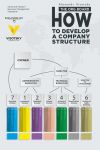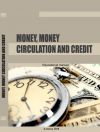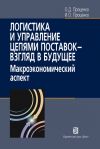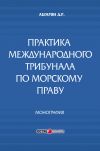
Автор книги: Виктор Миловидов
Жанр: Иностранные языки, Наука и Образование
Возрастные ограничения: +12
сообщить о неприемлемом содержимом
Текущая страница: 11 (всего у книги 16 страниц)
7. Банки
(Banks)
Federal Reserve System
The Federal Reserve System (the Fed) has been the central bank of the United States since it was created in 1913. The main purpose of a central bank is to regulate the supply of money and credit to the economy. The board of governors, the Fed's principal policy-making organization, plays a key role in this process.
The board has seven members, two of whom serve as chairman and vice chairman. Each governor is appointed to a fourteen-year term, while appointments to the roles of chairman and vice chairman are for four years. The president, with confirmation by the Senate, appoints all seven governors and designates which ones should also be confirmed as chairman and vice chairman. The terms of Federal Reserve governors are long to insulate the members from political pressures and foster independent decisions.
In order to regulate the nation's money supply the Federal Reserve has to influence the amount of reserve funds available to banks and thus the level and direction of short-term interest rates. Whether banks and other financial institutions will make loans depends on the profit margin – the difference in the rate of interest they must pay to attract deposits or borrow funds and the interest rate they can charge customers for credit. The greater the profit margin that banks can realize on new loans, the more they will want to lend. To influence interest rates on deposits and interest rates that banks pay to borrow funds, the Fed uses its congressionally granted authority to create money. The Fed creates money in three ways.
First and most important, the Fed can purchase U.S. government securities from financial institutions by simply creating «funds» (credits) on their balance sheets in exchange for the securities. As some banks recieve extra reserves, they lend these funds to other banks overnight to earn interest. The increased supply of reserves relative to demand in the money market pushes down the overnight interest rate. This decline in the cost of credit to banks increases the profitability of new loans to businesses and individuals and provides stronger incentives for banks to expand the amount of credit to the economy.
A second monetary policy tool available to the Federal Reserve is the discount rate, the interest rate the Fed charges on loans it makes to banks. By increasing or decreasing this rate, the Fed can discourage or encourage banks to borrow the funds it creates and, therefore, make more loans to the public.
A third way in which the Fed operates monetary policy is by regulating the proportion of liquid reserves that banks must keep on hand. Obviously, the higher the reserve requirement, the less there are funds available to make new loans.
Слова и выражения:
appoint – назначать
appointment – назначение
authority – власть, право
available – доступные, имеющиеся в наличии
chairman – председатель
charge – назначать (цену)
confirm – утверждать, подтверждать
confirmation – утверждение
create – создавать
designate – обозначать, означать, назначать, указывать
discount – скидка, дисконт; делать скидку, дисконтировать
foster – способствовать, поощрять, развивать
independent – независимый
insulate – изолировать, защищать
lend – давать взаймы, ссужать
liquid – ликвидный
overnight – на ночь
pressure – давление
principal – главный, принципиальный
profitability – прибыльность
realize – реализовывать
reserve – резерв; резервировать; резервный
Senate – сенат
term – срок
board of governors – совет управляющих
policy-making – определяющий политику
key role – ключевая роль
vice chairman – вице-председатель
reserve funds – резервные фонды
short-term interest rates – краткосрочные процентные ставки
make loan – давать ссуду, заем
profit margin – валовая прибыль, банковская маржа
attract deposits – привлекать депозиты
congressionally granted authority – данное конгрессом право
balance sheet – баланс
relative to – относительно (чего-либо)
push down – толкать вниз
discount rate – дисконтная ставка, ставка рефинансирования
liquid reserves – ликвидные резервы
on hand – на руках
reserve requirement – требования по резервным запасам
Exercise 1
Answer the questions:
1. Since when has the Fed been the central bank of the United States?
2. What is the main purpose of the Fed?
3. What role does the American Senate play in the work of the Fed?
4. Why are the terms of the FED governors so long?
5. What does the FED do in order to regulate the amount of the nation's money supply?
6. What is the profit margin of the bank?
7. How does FED create money?
8. How can the interest rate be pushed down?
9. What is the discount rate?
10. How are the commercial banks' liquid reserves regulated?
1
A banker was about to get married. He went to the jewelers to get a wedding ring for his fiancee. The jeweler told him that he can have the inside of the ring engraved with the name of his fiancee for an additional $20.
He said, «But that will reduce the resale value!» The jeweler was aghast. He said, «How can you say such a thing. You are a butcher!» «No,» replied the banker, «I am an banker».
2
A banker is someone who knows the price of everything and the value of nothing.
3
One of life's disappointments is discovering that the man who writes the bank's ads is not the one who makes the loans.
Слова и выражения:
additional – дополнительный
butcher – мясник
disappointment – разочарование
discover – обнаруживать
engrave – гравировать
fiancee – невеста
inside – внутренняя поверхность
jeweler – ювелир
resale – перепродажа
get married – жениться (выходить замуж)
wedding ring – обручальное (свадебное) кольцо
bank's ad – банковская реклама
Bank Runs
A run on a bank occurs when a large number of depositors, fearing that their bank will be unable to repay their deposits in full and on time, try to withdraw their funds immediately. This creates a problem because banks keep only a small fraction of deposits on hand in cash; they lend out the majority of deposits to borrowers or use the funds to purchase other interest-bearing assets like government securities. When a run comes, a bank must quickly increase its liquidity to meet depositors' demands. It does so primarily by selling assets, frequently at fire-sale prices. Losses on these sales can make the bank insolvent.
The danger of bank runs has been overstated. For one thing, a bank run is unlikely to cause insolvency. Suppose that depositors, worried about their bank's solvency, start a run and switch their deposits to other banks. If their concerns about the bank's solvency are unjustified, other banks in the same market area would generally gain from recycling funds they receive back to the bank experiencing the run. They would do this by making loans to the bank or by purchasing the bank's assets at non-fire-sale prices. Thus, a run is highly unlikely to make a solvent bank insolvent.
Of course, if the depositors' fears are justified and the bank is economically insolvent, other banks would be unlikely to throw good money after bad by recycling their funds to the insolvent bank. As a result the bank could not replenish its liquidity and would be forced into default. But the run would not have caused the insolvency; the insolvency had already been incurred, but not fully recognized. The recognition of the existing insolvency caused the run.
Слова и выражения:
bear – нести, носить
concerns – озабоченность
default – дефолт, невыполнение обязательств
incur – потерпеть (убытки), принять на себя (расходы)
insolvent – несостоятельный
justified – оправданный
liquidity – ликвидность
occur – случаться, происходить
overstate – преувеличивать
recognition – узнавание, признание
recognize – узнавать, признавать
repay – выплачивать
replenish – пополнять (запасы)
solvency – состоятельность
switch – переключаться
unjustified – неоправданный
unlikely – маловероятно
withdraw – снимать деньги со счета в банке
run on a bank– «натиск» на банк (наплыв депозиторов с целью изъять депозиты)
repay in full – выплачивать полностью
interest-bearing assets – активы, по которым выплачиваются проценты
meet demand – удовлетворять требования
fire-sale price – «горящая» цена (заниженная цена на «горящие» активы)
throw good money after bad – рисковать хорошими деньгами ради плохих
Exercise 2
Answer the questions:
1. When does a run on a bank occur?
2. Why does a run on a bank create problems for the bank?
3. What should a bank do if it is run on by depositors?
4. What can happen to a bank if it sells its assets at a fire-sale price?
5. Why are the dangers of bank runs usually unjustified?
6. How do banks cooperate in case a run on one bank occurs?
7. Why would banks not help another bank in case of a bank run?
8. What usually causes the bank run?
1
A guy walks into a bank and says to the teller at the window, «I want to open a helluva checking account.»
To which the lady replied, «I beg your pardon, what did you say?»
«Listen up dammit, I said I want to open a helluva checking account right now.»
«Sir, I'm sorry but we do not tolerate that kind of language in this bank!»
The teller left the window and went over to the bank manager and told him about her situation. They both returned and the manager asked, «What seems to be the problem here?»
«There's no damn problem,» the man said, «I just won 50 million in the lottery and I want to open a helluva checking account in this damn bank!»
«I see, sir,» the manager said, «and this damn old gal is giving you a hard time?»
2
If you owe the bank $100, that's your problem. If you owe the bank $100 million, that's the bank's problem.
Слова и выражения:
helluva (от hell of a) – чертов, проклятый
language – язык
lottery – лотерея
owe – быть должным
teller – кассир в банке
tolerate – выдерживать
checking account – чековый счет, текущий счет в банке
I beg your pardon – прошу меня извинить
no damn problem – никакой чертовой проблемы
damn bank – чертов банк
old gal – старушка
a hard time – трудные времена
Capital Flight
Capital flight is the widespread currency speculation, leading to cross-border movements of private funds that are large enough to affect national financial markets. The distinction between «flight» and normal capital outflows is a matter of degree, much like the difference between a «bank run» and normal withdrawals. The most common cause of capital flight is an anticipated devaluation of the home currency. No one wants to be caught holding assets that lose 20 or 30 percent of their value overnight, so everyone tries to buy gold or foreign currency. These episodes are usually short-lived, as the so-called «hot money» returns after the devaluation.
Capital flight is usually a symptom rather than a cause of financial crisis. Occasionally, however, rumors of a devaluation can trigger capital outflows. Expectations of devaluation can become self-fulfilling, as depletion of the central bank's reserves force it to devalue. In these cases capital flight becomes a source of financial instability, much as withdrawals by worried depositors can cause an otherwise sound bank to fail.
Not surprisingly, episodes of capital flight are most frequent when exchange rates are unstable. In the twenties and thirties the demise of the gold standard led to numerous speculative attacks on the French franc and German mark. When the Bretton Woods system of fixed exchange rates began to break apart in the late sixties, the United States tried to defend the dollar with capital controls and by refusing foreign banks' demands to convert dollars to gold. (U.S. citizens were already barred from owning gold.) After exchange rates were set free in 1973, the U.S. dollar replaced gold as the flight vehicle of choice. Convertible to most currencies, dollars also earn interest in convenient offshore or Eurodollar accounts.
Since the Third World debt crisis in the eighties, the term «capital flight» has been applied more broadly to capital outflows from residents of developing countries. One reason that capital fled the debtor countries is that domestic investors felt their government would give precedence to its foreign rather than its domestic debt obligations. This situation contrasts with the earlier experience with direct foreign investment, when domestically owned assets were considered safe from expropriation while foreign-owned assets were at risk.
Governments can adopt different measures to prevent capital flight.
When fixed exchange rates fail, governments often resort to capital controls, as the United States did in the sixties. Imposing controls during or just after a capital flight episode, however, is a little worse than closing the barn door after the horse has fled. Controls further reduce confidence in local financial markets and make capital that has flown less likely to return. Capital controls encourage black markets for foreign currency and other costly methods of evasion. Those who import or export goods can also export money by simply overstating the value of the goods they import or by understating their export earnings. Even the most draconian measures to limit capital flight often fail. Capital flight from the Weimar Republic continued in 1931, despite the fact that capital expatriation was made an offense punishable by death.
Another strategy that governments can use to limit capital flight is to make holding domestic currency more attractive by keeping it undervalued relative to other currencies or by keeping local interest rates high. The drawback to this approach is that raising interest rates and making imported equipment more expensive can reduce domestic investment. A more sophisticated defense against hot money flows, but one that is harder to execute, is for the central bank to occasionally turn the tables on speculators. A classic «squeeze» of this type was engineered by Lazard Frures for the French government in 1924. Using a $100 million loan from J. P. Morgan, they bid the franc from 124 to 61 per dollar in a few weeks. Speculators who had sold the franc short in the expectation that its value would fall were hit by big losses. Italy, the United States, and Sweden have also used this unexpected intervention tactic from time to time.
Слова и выражения:
anticipate – предвосхищать, предугадывать
barn – амбар, конюшня
bid – предлагать цену, торговать(ся)
broadly – широко
confidence – доверие
convert – конвертировать
convertible – конвертируемый
currency – валюта
demise – кончина
depletion – истощение (запасов)
devaluation – девальвация
devalue – девальвировать(ся)
distinction – различие, отличие
domestic – домашний
draconian – драконовский
drawback – недостаток, ошибка
expatriation – экспатриация (возвращение на родину)
expectation – ожидание
expropriation – экспроприация
flee (fled) – спасаться бегством
flight – бегство
frequent – частый
instability – нестабильность
intervention – интервенция
notorious – пользующийся дурной славой
offense – оскорбление, нарушение закона
otherwise – в ином случае, иначе
outflow – отток
precedence – преимущество, приоритет
punishable – подлежащий наказанию
resident – житель, резидент (страны)
resort – обращаться, прибегать
sophisticated – изощренный
sound – здоровый, здравый, целый, неповрежденный
squeeze – выдавливать, выжимать
symptom – симптом
tactic – тактика
trigger – здесь: провоцировать, «включать» (букв. нажимать курок)
undervalued – переоцененный
unstable – нестабильный
widespread – широко распространенный
withdrawal – снятие (со счета), изъятие (депозита)
worried – обеспокоенные
cross-border – переходящий границы
a matter of degree – вопрос степени
short-lived – кратковременный
"hot money" – «горячие деньги»
self-fulfilling – самодостаточный, направленный на самое себя
gold standard – золотой стандарт
break apart – развал
bar from – запрещать (иметь или делать что-либо)
flight vehicle of choice – средство вывести капитал
debt crisis– долговой кризис
debtor countries – страны-должники
debt obligations – обязательства по долгу
black market – черный рынок
turn the tableson – повернуть оружие врага на него самого
Exercise 3
Answer the questions:
1. What is capital flight?
2. What can the distinction between «flight» and normal capital outflows be compared with?
3. What is the most common cause of capital flight?
4. Why do people carry their money away from their home country?
5. What are the best vehicles for the capital flight?
6. When is the capital flight most likely to occur?
7. How did the term «capital flight» change in the eighties?
8. What measures can be adopted to prevent the capital flight?
9. Why were the capital controls inefficient in the US in the sixties?
10. How can a government make the domestic currency more attractive?
1
At a country-club party a young man was introduced to an attractive girl. Immediately he began paying her court and flattering her outrageously. The girl liked the young man, but she was taken a bit aback by his fast and ardent pitch. She was amazed when after 30 minutes he seriously proposed marriage.
«Look,» she said. «We only met half an hour ago. How can you be so sure? We know nothing about each other.»
«You're wrong,» the young man declared. «For the past 5 years I've been working in the bank where your father has his account.»
2
A young banker decided to get his first tailor-made suit. So he went to the finest tailor in town and got measured for a suit. A week later he went in for his first fitting. He put on the suit and he looked stunning, he felt that in this suit he can do business.
As he was preening himself in front of the mirror he reached down to put his hands in the pockets and to his surprise he noticed that there were no pockets. He mentioned this to the tailor who asked him, «Didn't you tell me you were a banker?»
The young man answered, «Yes, I did.»
To this the tailor said, «Who ever heard of a banker with his hands in his own pockets?»
3
A man walks into a New York City bank and says he wants to borrow $2,000 for three weeks. The loan officer asks him what kind of collateral he has. The man says «I've got a Rolls Royce – keep it until the loan is paid off – here are the keys.» The loan officer promptly has the car driven into the bank's underground parking for safe keeping, and gives the man $2,000.
Three weeks later the man comes into the bank, pays back the $2,000 loan, plus $10 interest, and regains possession of the Rolls Royce. The loan officer asks him, «Sir, if I may ask, why would a man who drives a Rolls Royce need to borrow two thousand dollars?»
The man answers, «I had to go to Europe for three weeks, and where else could I store a Rolls Royce for that long for ten dollars?»
Слова и выражения:
amaze – изумлять
ardent – горячий, пылкий
attractive – привлекательная
collateral – обеспечение займа, залог
fitting – примерка
flatter – льстить
immediately – немедленно
introduce – представлять, знакомить
marriage – женитьба
outrageous – возмутительный
pitch – решительность
preen – прихорашиваться
promptly – быстро
propose – предлагать (руку и сердце)
store – хранить
stunning – ошеломляющий
country-club party – вечеринка в загородном клубе
pay court – ухаживать (за женщиной)
taken aback – ошеломленный, удивленный, озадаченный
a bit – немного
tailor-made suit – костюм, сшитый портным
got measured – был измерен
underground parking – подземная стоянка
safe keeping – хранение
regain possession – вновь принять во владение
8. Тексты для дополнительного чтения
(Supplementary Reading)
New Forex Tool for Currency Investors
Investors have been given a new tool for trading in the global currency markets, with the launch of the first standardised foreign exchange indices on Monday.
These new products enable investors to place bets on the value of single currency, such as the dollar, in terms of a trade-weighted basket – instead of being forced to express foreign exchange views in pairs of currencies, such as the movement of the dollar against the euro.
This shift could potentially attract a new group of retail investors into the foreign exchange markets, some investment bankers claim. But it could also facilitate the creation of a new branch of advanced derivatives, since complex structured products are usually created using standardised indices – which have generally been lacking in the foreign exchange sector so far.
The new foreign exchange index, which will be called iBoxxFX, has been created by International Index Company, which is based in Frankfurt and jointly owned by a dozen major investment banks and Deutsche Börse.
Although IIC is not widely known outside the financial sector, it is a major player in the business of running independent market indices, such as the iTraxx index in credit derivatives. «Customers can now trade single currencies or specific macroeconomic blocks. This will facilitate the development of structured products based on indices,» said David Mark, chief executive of IIC.
He added that the development of such indices was particularly «timely» given the current investor attention to the dollar and euro.
The world of foreign exchange has until now lacked any major, well-established indices, in sharp contrast to the equity, credit or commodity sectors. Some investment banks have attempted to develop proprietary indices, but these have never become widespread.
As a result, investors who wanted to express a view on a currency usually had to do so in a way that forced them to make a judgement about two countries, rather than just one.
However, the iBoxxFX indices, which will cover most of the largest currencies, will let investors express a view about a single currency in isolation.
By Gillian Tett
Слова и выражения:
branch – отрасль, ветвь
commodity – товар
complex – сложный, составной
dozen – дюжина
equity – капитал
euro – евро
facilitate – содействовать
global – глобальный, всемирный
index (мн. ч. indices) – индекс
isolation – изоляция
jointly – совместно
lack – терпеть недостаток
launch – стартовать, запускать, внедрять
proprietary – собственный
retail – розничный
sector – сектор
shift – сдвиг
single – единственный
standardise – стандартизировать
tend – иметь тенденцию, стремиться (к чему-либо)
timely – своевременный
widespread – широко распространенный
place bets – размещать заявки на участие в торгах
in terms of – в терминах
trade-weighted basket – набор товаров и услуг
foreign exchange views – прогнозы и оценки состояния международного валютного рынка
pair of currencies – пара валют (соотношение которых определяет валютный курс)
advanced derivatives – современные производные (от традиционных финансовых инструментов)
International Index Company – Международная компания индексации
investment bank – инвестиционный банк
Deutsche Börse – Германская биржа
so far – к настоящему моменту
credit derivative – кредитная производная
macroeconomic blocks – макроэкономические блоки
well-established indices – хорошо установленные индексы
in sharp contrast – в резком противопоставлении
Правообладателям!
Это произведение, предположительно, находится в статусе 'public domain'. Если это не так и размещение материала нарушает чьи-либо права, то сообщите нам об этом.








































